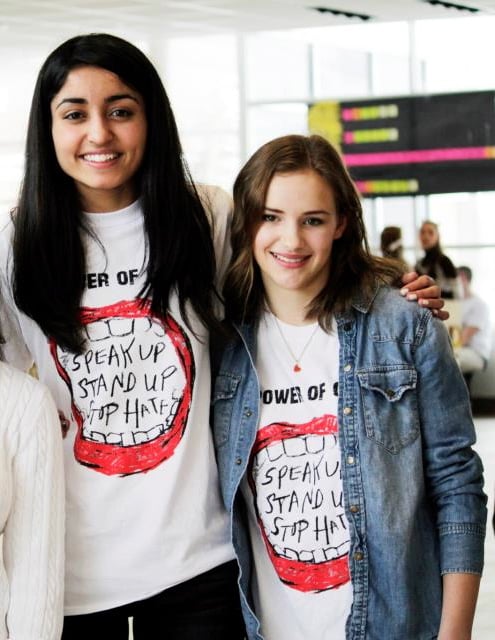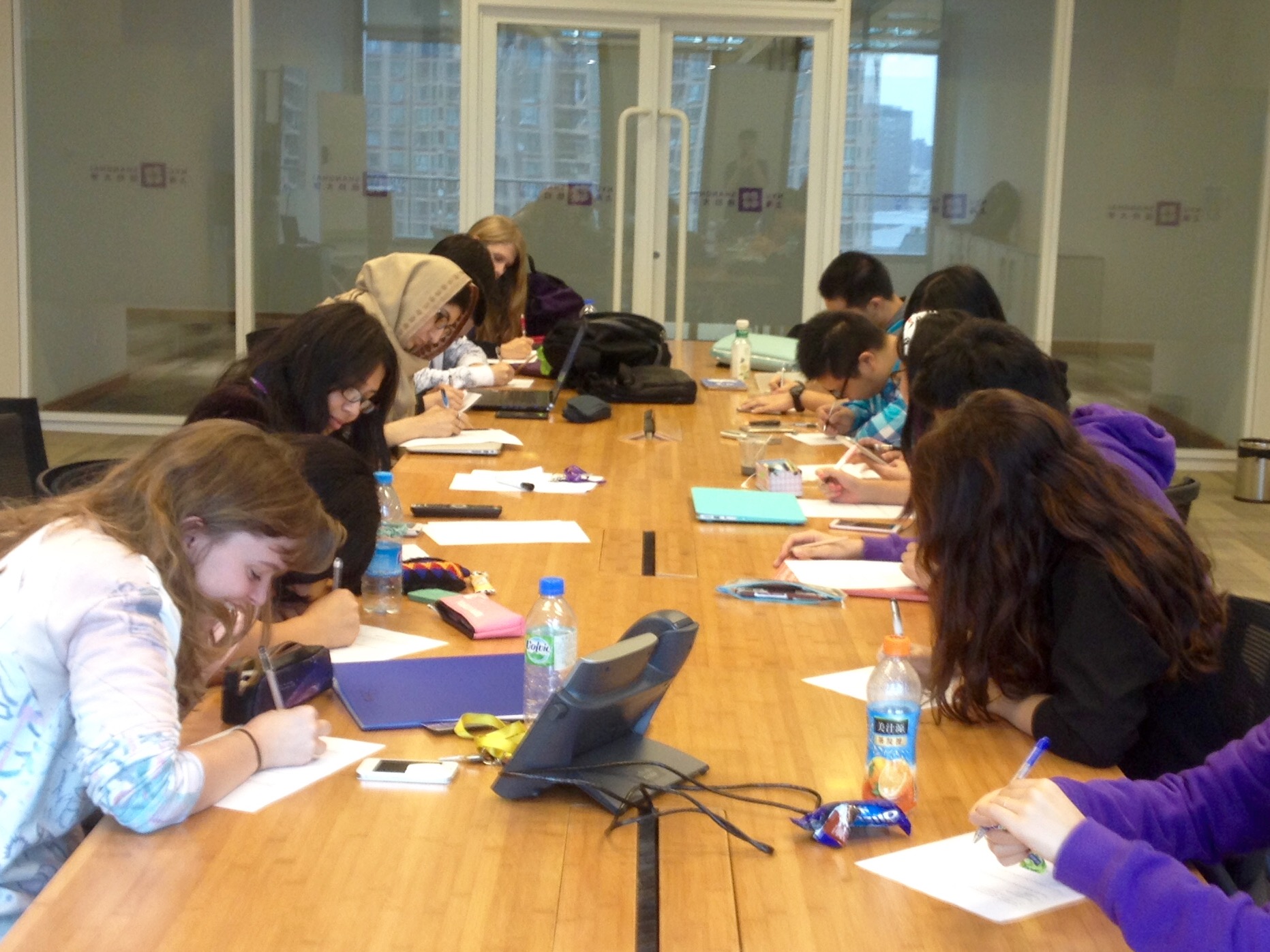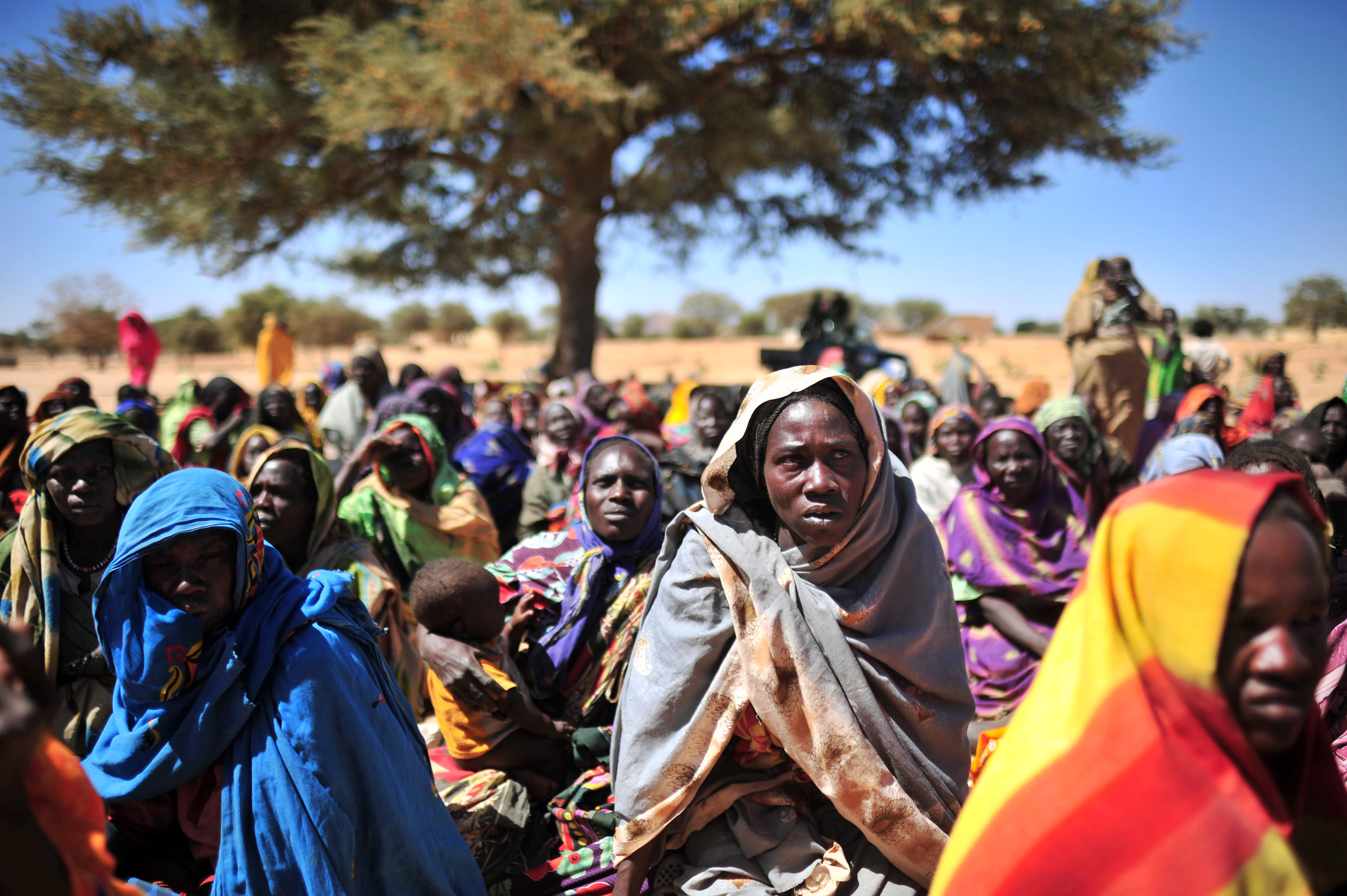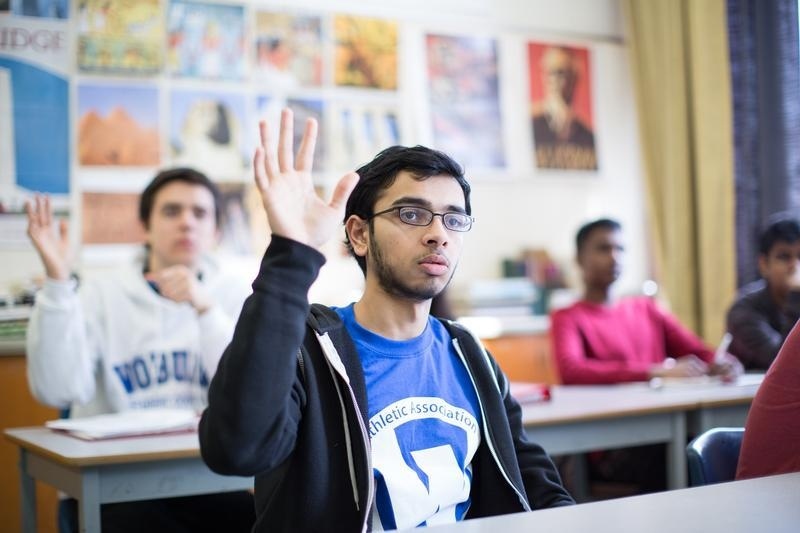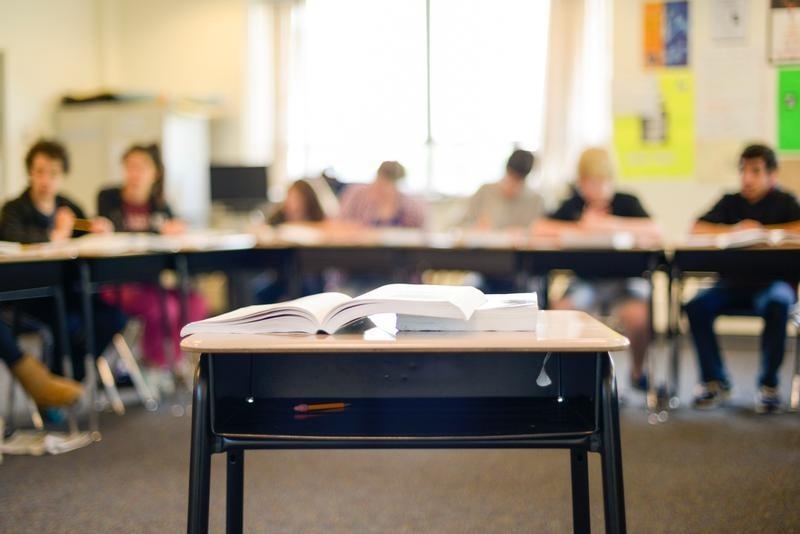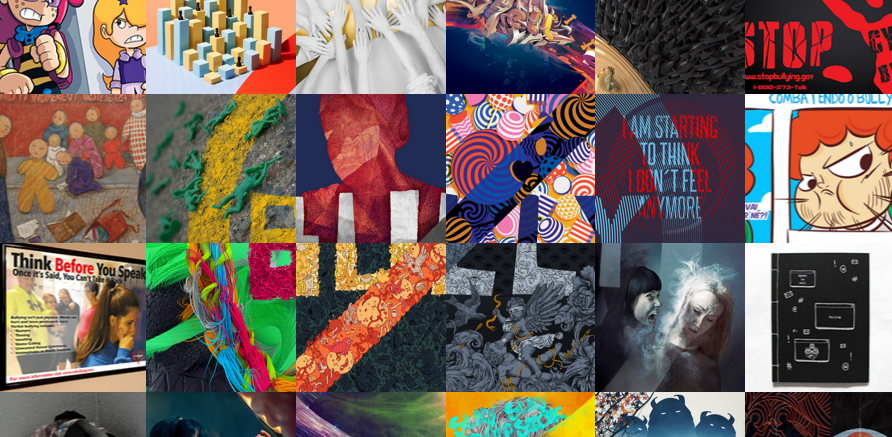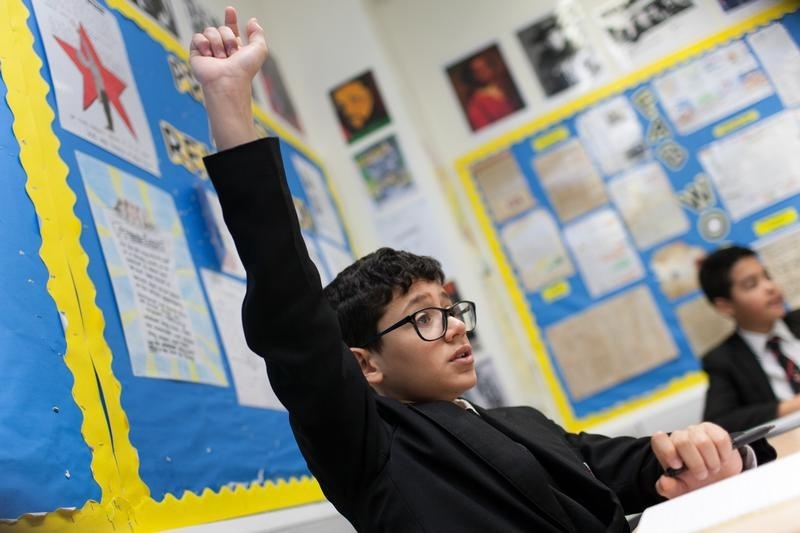Students leave a Facing History classroom inspired by history—not paralyzed by it. They are inspired to learn more, to empathize, to speak up, and to advocate for change.
In partnership with The BULLY Project and other like-minded organizations, we are working with two Facing History alumnae whose study of history and the impact of choices people made have inspired them to petition the Oxford English Dictionary and Merriam Webster Dictionary to add the word upstander.
Read More
Topics:
Classrooms,
Bullying and Ostracism,
Students,
Bullying,
The BULLY Project
Nous pleurons avec le peuple de France. Ce qui s’est passé vendredi soir est inimaginable. Les Parisiens faisaient ce que tout le monde fait dans une société libre : ils passaient la soirée dehors avec des amis ou en famille, ils dînaient, buvaient, riaient, écoutaient de la musique, regardaient un match de football. À La fin de la soirée, plus de 120 personnes avaient été assassinées, des centaines blessées et des milliers terrorisées. Nous l’étions tous, d’ailleurs.
Une société libre et ouverte se fonde sur un contrat social qui prescrit que nous vivions ensemble dans la paix et le respect. Le terrorisme rompt ce contrat. C’est son objectif, pour qu’il devienne plus difficile de rester ouverts et inclusifs.
Read More
Topics:
Classrooms,
Teaching Strategies,
International,
Students,
Paris
We mourn with the people of France. Friday evening’s events are unimaginable. Parisians were doing the things that people do in a free society, enjoying an evening out with friends and family, having dinner, a drink, a laugh, hearing music, watching a football match. By the end of the night, more than 100 people were murdered, hundreds were injured and thousands more were terrorized. In fact, we all were.
Remaining a free and open society is based on a social contract, that we will live together with respect and in peace. Terrorism disrupts this. It is designed to do just that, making it harder to remain open and inclusive.
Read More
Topics:
Classrooms,
Teaching Strategies,
International,
Students,
Paris
“The movement to end war and mass atrocities spans centuries, peoples, and ideologies”
I became interested in international criminal law and genocide prevention through Facing History and Ourselves’ founder Margot Stern Strom, for whom I interned during my gap year between high school and college. Margot introduced me to the thoughts of Benjamin Ferencz, the only surviving prosecutor of the Nuremberg Trials. As I read through Ben’s articles and books, I internalized his call to action. Margot and Ben’s approach to the world resonated with my heart, my deepest sense of human dignity, and my own moral reasoning as to how we must learn to get along with each other as one human community.
Read More
Topics:
Benjamin B. Ferencz,
International,
Facing History and Ourselves,
Intern,
International Justice
We are excited to welcome American photojournalist and MacArthur Genius Grant Winner, Lynsey Addario, who will be headlining our upcoming Community Conversation in Chicago on Thursday, November 12, presented in partnership with The Allstate Foundation.
The author of a New York Times best-selling memoir It’s What I Do: A Photographer’s Life of Love and War, Addario uses her work as a photographer to record images of people and societies in conflict around the globe.
Read More
Topics:
Photography,
Community Conversations,
Lynsey Addario,
Journalism,
The Allstate Foundation
In an interview with Facing History and Ourselves, sociologist Claude Steele explained that “stereotypes are one way in which history affects present life.” Stereotypes about race are among the most common. The challenge many of us face is that there are few opportunities to talk about the impact of stereotypes, where they come from, and how to break them down. Schools can provide opportunities for these important discussions, yet teachers too often lack both resources and professional development to help them navigate what can be difficult terrain.
Read More
Topics:
Classrooms,
Race and Membership,
Teaching Resources,
Video,
Eugenics/Race Science,
New York Times
What do Facing History and Ourselves classrooms really accomplish? Where do our students go after graduation? And how does our approach actually change their lives? We find one answer in the story of a Dominican teenager who immigrated to New York City less than a decade ago. Luis Santos—like so many youth today—fled violent rioting in the streets of the Dominican Republic after it took the life of one of his best friends. Santos found himself attending the Facing History School in Hell's Kitchen, NYC.
Read More
Topics:
Students,
New York,
Teaching,
Facing History and Ourselves,
Teachers,
Bryan Stevenson
October is Bullying Prevention Month in the U.S. Add your voice to The BULLY Project’s latest collective effort to raise awareness by sharing art and stories.
One of the hardest things about bullying, said filmmaker Lee Hirsch, is communicating about it. Lee, the founder of the The BULLY Project, which has sparked broad conversations about the bullying epidemic, has been working to build bullying prevention into a grassroots movement. His award-winning 2011 documentary, Bully, has the tagline: “When we come together, we can do anything.”
Read More
Topics:
Classrooms,
Bullying and Ostracism,
Students,
Bullying,
Lesson Plans,
The BULLY Project
When you use video in the classroom, are you asking your students to be passive or active?
I can certainly appreciate the leisurely watching of movies and television shows, even documentaries. But as a teacher, when I chose to use valuable class time to view videos, I wanted my students to be as engaged as possible.
Read More
Topics:
Video,
Flipped Classroom,
Facing Technology,
Lesson Plans,
Learning,
Zaption
Warsaw, May 2014:
Staring at two rusted milk cans at the Emanuel Ringelblum Jewish Historical Institute, I feel overwhelmed by the weight and significance of the history they carry. These one-time ordinary artifacts stand in front of an archive of unbelievable power, documenting daily life in the Warsaw Ghetto from 1940 to 1943.
Read More
Topics:
Memory,
Holocaust,
Facing History and Ourselves,
Teachers,
History,
Holocaust and Human Behavior,
Holocaust Education

